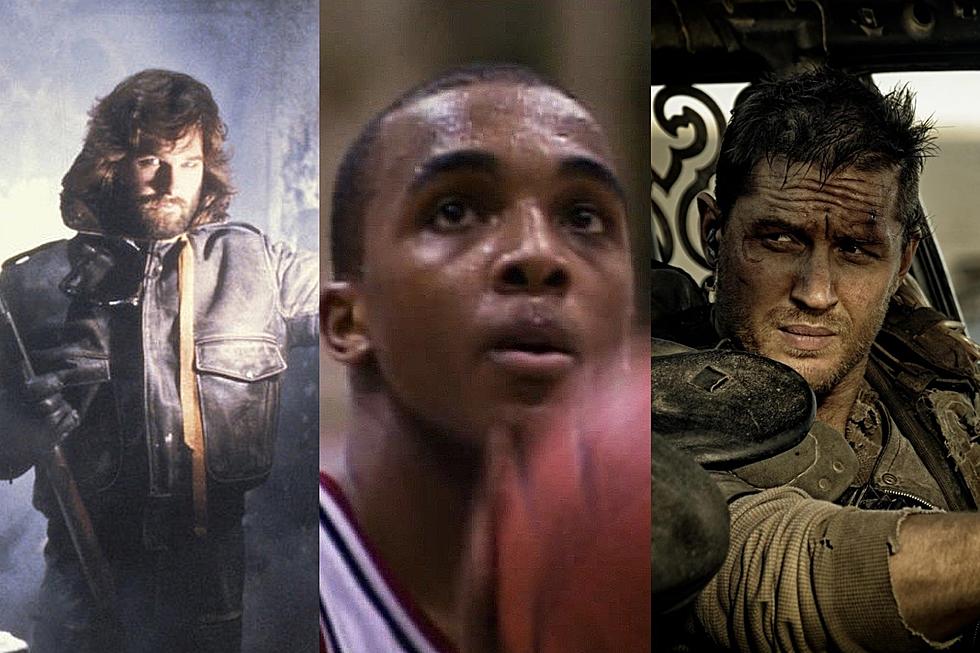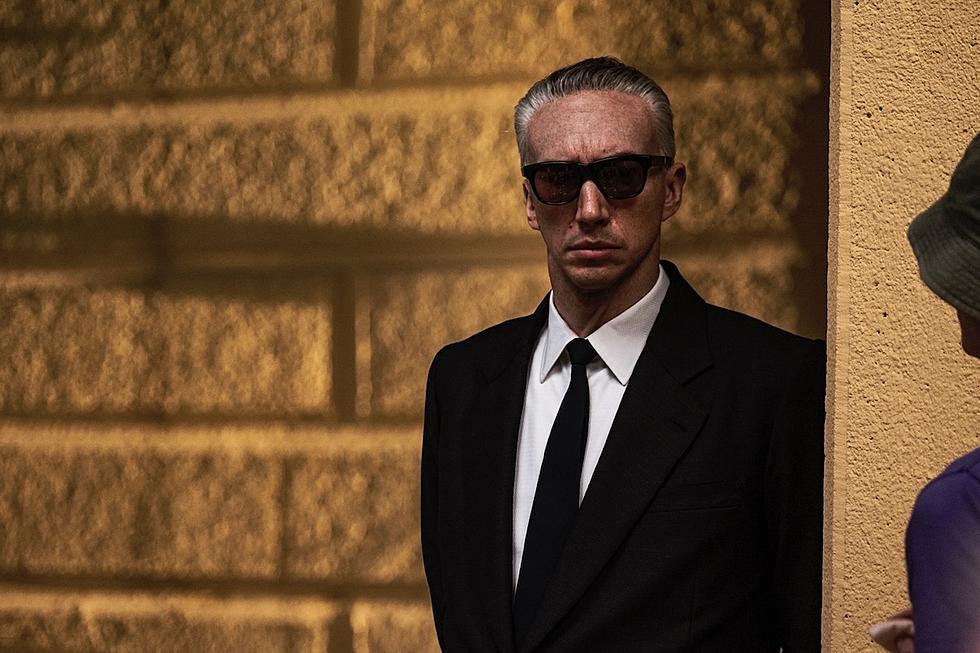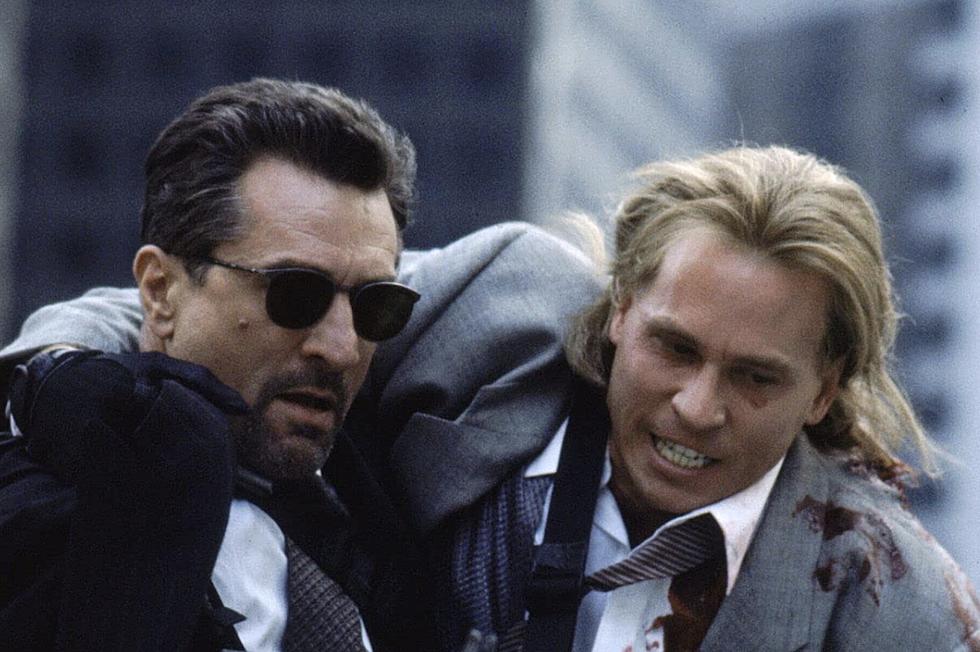
‘BlacKkKlansman’ Review: Spike Lee’s Incendiary Thriller About Racial Violence, Past and Present
“Dis joint is based on some fo’ real, fo’ real s—,” reads the title card that begins Spike Lee’s BlacKkKlansman, based on the autobiographical book by Ron Stallworth of almost the same name. (Stallworth’s book is titled Black Klansman, while Lee’s movie takes a more stylized approach.) BlacKkKlansman is a true story in two distinct ways: police Sergeant Ron Stallworth did indeed infiltrate his hometown’s chapter of the Klan disguised as a white man, and the racism and hatred that made it possible for the Klan to take root in Colorado Springs in 1979 still alive and well in this country today.
The film begins with a prologue, kicking off with the iconic scene from Gone With the Wind where Scarlett O’Hara walks among the sick Confederate soldiers as the music swells, before launching into a kind of Ku Klux Klan introduction video, Eugenics 101 recited by a fiery Alec Baldwin in a suit. It’s important that we realize that men fought and died for American racism and that, in some ways, their crusade succeeded. Only then do we get into the story: Ron Stallworth (John David Washington) arrives at the Colorado Springs Police Department and volunteers to become their first black recruit. He’s accepted into the force but has to work in the records room, where he’s treated to a few choice racial slurs by the cops that come there looking for information on black criminals.
He asks to become an investigator but is turned down, until he’s tapped to attend a Black Panther rally led by civil rights organizer Kwame Ture. Afterwards, he finds a classified ad for the KKK, calls the number, and has a conversation with the Colorado Springs chapter leader who invites him to come meet the brothers in person.
Washington plays Stallworth as a cipher, his motivations for doing what he does — joining the police force, infiltrating the KKK — unclear apart from a general sense that he wants to take down racism in his town. He reminded me of the way the actors in FX’s Atlanta look upon their ridiculous situation at times with resigned bemusement. Adam Driver is charming as usual as Flip Zimmerman, a surveillance technician who becomes Stallworth’s partner and impersonates him whenever Stallworth has to meet with the Klan. Driver’s classic amiable nature swiftly becomes uncomfortable to watch as the script tasks him with spouting the vilest profanity and racial slurs this language has ever come up with in order to fit in with his Klan comrades.
It’s a bit absurd to see Topher Grace playing grand wizard David Duke, and this is probably intentional, his appearances near the beginning of the film played for laughs as he converses over the phone with the black Ron Stallworth about the joys of being a white man. Laura Harrier also shines as Patrice, a university student and black student union president who by turns flirts with and argues against Stallworth’s noncommittal attitude towards the power of racial activism. Their scenes together alternate between debate and didactics, at times feeling like both are speaking directly to the non-black people in the room. Harry Belafonte also makes a powerful cameo as a speaker who relays the story of Jesse Washington, a black man who was horrifically lynched in Texas in 1916 after being accused of the rape and murder of a white woman.
In Belafonte’s scene, and in many others throughout the film, Lee often attempts to juxtapose the Black Panther meetings with the Klan gatherings, but it’s unclear, except on a surface level, what exactly he’s trying to say by comparing the two. One is clearly instigating violence while the other talks about killing white racist cops only in order to save themselves; the comparison is awkward and unsubtle. Then again, Lee has never been a subtle filmmaker. BlacKkKlansman is more uneven than many of his past masterpieces, though the soundtrack, utilizing gospel alongside Emerson, Lake and Palmer, is very strong.
Watching BlacKkKlansman as an American in a theater full of Europeans at the Cannes Film Festival was a unique experience. There was a distinct rise in tension in the room whenever the film called back (or, more accurately, called forward) to what’s going on in today’s America, from a Klan member saying that the organization just wants “America to achieve its greatness again” (knowing groans in the theater), or when another character says, “America would never elect someone like David Duke” (more knowing groans), or when the Klan members chant “America First,” (a few scattered, sad laughs). The film’s humor has an interesting pace; it’s downright hilarious until it’s not Lee’s fury and sadness cuts through the haze in what builds to a sobering finale. Stallworth’s mission did not save the country from the original sin it was born from, and Spike Lee’s film refuses to absolve us.
More From ScreenCrush









